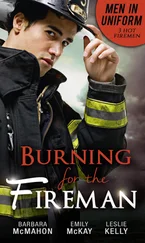We’ll see what we can figure out, her associate said, looking questioningly at the woman.
Good, said Steve, abruptly, already standing up and pushing himself out of the settee, waiters rushing over belatedly to help with the operation. I’ll be back in a few minutes and you’ll tell me what you’ve come up with.
Jonathan looked on as his father made his way to another table across the room. It was a table for four and it had one empty seat. A waiter materialized to pull that chair out so Steve could commandeer his body onto the pink velvet. Simultaneously, another waiter appeared with a pot of hot coffee and filled the cup at Steve’s place. As Jonathan witnessed this maneuver — the man and the woman at the table twisted in their seats, also observing Steve at work — Jonathan’s perspective seemed to float to the top of the room, to hover amid the ceiling fixtures and gaze down upon the restaurant with its many tables and see that at each one of them, perhaps fifteen in all, there was a vacant seat.
—
From this lofty height each white-tableclothed table appeared like a big hooped skirt, a belle at a ball waiting for her partner. Flatware gleamed like jewelry. The china reflected the rosy velvet of the chairs and the amber lights that lined the walls like dewy skin reflecting the whirl of a party. This was a dance, a ritual, as orchestrated and as military as a nineteenth-century ball. Waiters’ heads swam among the tables like moving hands reaching out for ladies’ gloves. And amid the swirl, Steve moved methodically from dancer to dancer. Every table was his.
—
When Jonathan realized that each vacant seat was meant for Steve, that each table represented another breakfast meeting for the great man, he felt first proud, then surprised, then rejected. Proud that his father wielded enough power to fill the restaurant for his 8:30 breakfast meetings, surprised that he, Jonathan, had not been informed of this, and rejected as he understood that it must work this way every morning, that his father must have held multiple simultaneous meetings at this restaurant for years, without Jonathan knowing. It was trivial, in the scheme of things, and yet Jonathan felt betrayed. There had been so many other betrayals, so many slights and ignominies, patronizing, belittling remarks and demeaning speeches, but Jonathan took this singular display of power, this flaunting of his father’s generous aggression and hidden life, as if he, Jonathan, were a jilted lover discovering that he had been cheated on with everybody at the party.
—
He stood up and left the retail couple to work out their proposal over a second basket of fresh morning pastries. He strode over to the table at which his father was now seated and, pulling up the unused chair from a nearby grouping, insinuated himself into the conversation. He followed his father from table to table, witnessing negotiations, promises made and broken, feigned loyalties, outright lies, all in the space of an hour. He saw that one of Steve’s favorite tactics was to provoke someone into being angry with him and then to apologize and fall on his sword, take the blame, go so far as to take himself out of the running for a project, and then, in parting, at the moment of utmost trust, tell his opponent: Just whatever you do, don’t do X. X being, as Jonathan well knew, precisely what Steve wanted done. It seemed to work every time. This was like accompanying a grand master on his chess rounds. The exhilaration of being on the winning side, again and again, made Jonathan nearly forget his earlier feelings of rejection and betrayal. This was experience, this destroying of one feeling and replacing it with another, this endless, violent churn of emotion.
Back at the table with the settee, the man with the cuffs and the woman with the elastic face both stood up when Steve and Jonathan returned, having learned their lesson, that it behooved them to get out of the way when the waiters pulled out the table to let Steve, his luxurious gray jacket rippling in the breeze of his oversize, lumbering, yet somehow refined movements, and Jonathan, his trimmer form less commanding, both resume their places on the settee.
So, said Steve, as soon as the waiter had finished pouring what must have been his seventeenth cup of coffee, what do you have to tell us?
Jonathan felt flattered hearing the word “us.”
Actually, said Steve, calling over the waiters to repeat the elaborate exiting process and beginning to rise, I’m going to let you present your ideas to my son. I’m putting him in charge of this entire project.
The whole development? asked Jonathan, barely concealing his pride and astonishment. It was an enormous expansion of the downtown of a major city, and Jonathan had not even been allowed to see the plans. He had been off in Europe and the Near East, not permitted to work too close to home, where Steve liked to run the show.
Yes, said Steve. You’re running it. Now I’m going to go use the men’s room.
He threw his napkin down as he left and a corner of it landed in his coffee.
—
A car waited outside the hotel to take them to the company offices in Rockefeller Center. Jonathan began reporting on the discussion he had had while Steve had been gone. Steve interrupted him before he’d gotten far.
That’s a bullshit deal. I’ll never give them space in the building. Not in that building or any other building in the complex. They’re a losing organization, not high end enough for what we’re putting in there.
What about the arrangement they made to get the council to revoke the public plaza mandate?
That’s good. I’ll take that.
How are you going to keep that but not let them in the building?
Steve closed his eyes and shook his head. He leaned back against the leather.
I’ll explain to them that I’m doing it for their own good. I’ll explain that we’ll find them a more suitable space somewhere else.
Got it. Understood.
It doesn’t matter if you get it.
What do you mean? I thought I was running the project.
Steve looked out the window: You’re not.
Why not?
You’re too busy with international.
Why can’t I do something closer to home? Miranda is sick of my traveling. I’m sick of it. The jet lag, the bad pillows, the sickening food.
Take your own pillow with you.
I’m exaggerating. The pillows are fine.
Outside the car stores streamed past, in their windows mannequins animated in a series of random incomprehensible poses, like the contortions of prey, seemingly sophisticated arrangements of limbs, awkward bodies caught midmovement, unnatural, expressionless.
But really, just tell me, honestly, why can’t I run this thing?
Steve waited a moment to answer, seemed to be ruminating, dismissing ideas. Then he said:
It’s for your own good.
—
That’s when Jonathan decided to call Warren and Wolf and to take seriously their proposal for the tri-state-area hotels. Until now, Jonathan had limited his unauthorized dealings with them to the international sphere, his territory. He was ready to talk to them about domestic projects. They could start today.
—
Already in the car he is gliding, gliding toward the tragic, the enacting of feelings too enormous to contain. He is already ruined; Steve ruined him long ago. But now he is determined, unconsciously, to be a part of his own destruction. He thinks he can bring Steve down without hurting himself. This is his rage. This is his ignorance. This is his minor tragedy.

POPPY WALKS TO school in a state of psychedelic dissociation. What has happened to her has split her off from herself. She feels as if she has no memories, but the truth is that she is so consumed by the feelings attached to her memories that she is living inside a memory, a hallucinatory trance. This is even without the drugs. Emotions wash over her and she can’t place them or name them or connect them with their original source, but if she could she would feel her mother’s voice, dark candied-violet burnt sugar, slide down her own throat, would feel Ian’s touch, light green new leaves waving gently like babies’ hands, lifting and then dropping her hair in the breeze, would feel Felix’s wise happy presence, his pink salty smile guileless and rakish at the same time, forcing her own mouth to curve in a smile.
Читать дальше













